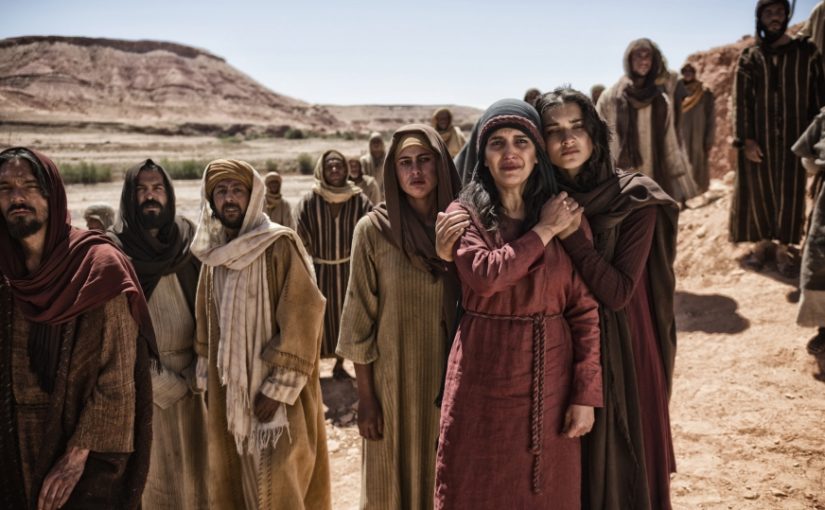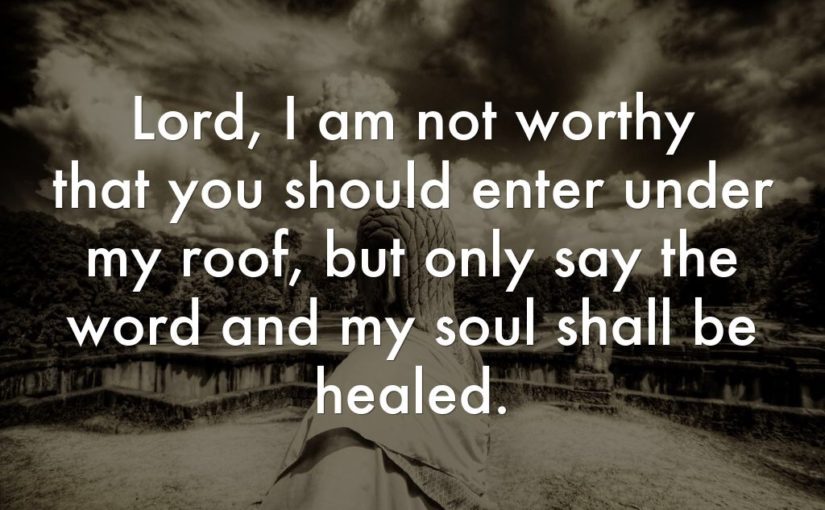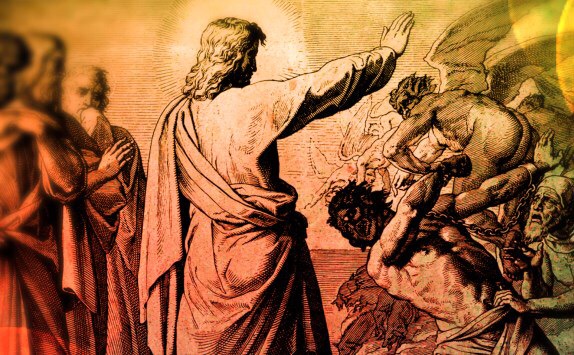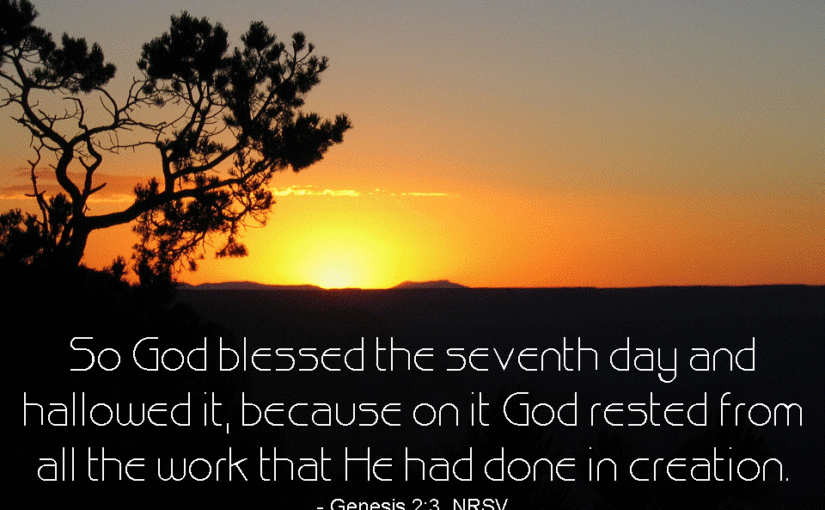Readings: Genesis 1:26-2:3 | Psalm 90 | 1 Thessalonians 4:1b-2, 9-12 | Matthew 6:31-34
One of the things that I remember vividly about my childhood is how hard my parents worked. My Dad worked more than one job at a time for several years. And in his main job, he was with the company for well over forty years, finally retiring from the company he worked for since his late teens. My mother, too, worked outside the home, and still does on a part-time basis. They encouraged me to work as well, and the experience of the work I did in my late teens is something that I carried with me throughout my pre-seminary work years, and continue, really, to benefit from to this very day. And that’s how work is supposed to be: participation in God’s creation, enhancing our human dignity, bringing forth our gifts, and helping us to be better people. Work should also help us to sustain our lives and our families, and to provide for their needs, including health care and retirement. The Church has consistently and loudly taught these truths about work ever since Pope Leo XIII’s ground-breaking encyclical Rerum Novarum, published in 1891.
As we observe Labor Day this year, though, I think we still have work to do on those principles. Far too many people don’t have the resources that work provides. The bishops of our nation publish a yearly Labor Day statement, and this year they write about the fact that so often labor is viewed as a commodity, a thing to be bought and sold, rather than as a participation in the ongoing creative work of God and an expression of the dignity of the human person, which is rightly work’s purpose.
“When workers and labor are properly honored,” they write, “the social bonds of society are strengthened. Work is not just about individual growth and development. When work finds its proper role in the life of society, Pope Francis explains, it is the great teacher of cooperation and solidarity. Daily work is a form of ‘civil love’ that ‘makes the world live and carry on.’”
The bishops note that technology, while a wonderful development to help in human progress, can also be misused as a means to devalue human labor: “Today, we are in the midst of a technological revolution, which has coincided with severe economic disparity and threatens to continue or accelerate due to many factors such as the growing presence of automation technology in the workplace. Once again, we see in many places the consequences of widespread failures to pay a just wage and to honor the dignity of work for each person. The root of the problem, which remains prominent, comes from an errant understanding that “human work is solely an instrument of production” such that business leaders ‘following the principle of maximum profit, tr[y] to establish the lowest possible wages for the work done by the employees.’”
They also note the declining availability of time for rest: “When workers do not have adequate time to rest, families suffer. Also lost is the necessary time for spiritual growth and building a relationship with God. Pope Francis has said it is ‘inhuman’ that parents must spend so much time working that they cannot play with their children. Surely many wish for more time, but their working conditions do not allow it. As St. Thomas Aquinas wrote, ‘Even as God rests in Himself alone and is happy in the enjoyment of Himself, so our own sole happiness lies in the enjoyment of God. Thus, also, He makes us find rest in Himself, both from His works and our own. It is not, then, unreasonable to say that God rested in giving rest to us.’ A culture that obsesses less over endless activity and consumption may, over time, become a culture that values rest for the sake of God and family.”
Finally, the bishops call us to rediscover the sacredness of work, which is rooted in the knowledge that as we work, we help God to continue to build up the world in his image. “This notion that work is sacred is essential, not only to understanding our work, but also to coming to know God himself; nowhere do we see this more powerfully than in the Eucharist. The Holy Father calls us to drink more deeply of this idea: “Work is a friend of prayer; work is present every day in the Eucharist, whose gifts are the fruit of man’s land and work. A world that no longer knows the values, and the value, of work does not understand the Eucharist either, the true and human prayer of workers . . .’”
And so on this Labor Day it is especially appropriate that we reflect on the Genesis story of the creation of the world, showing the work of our Creator God and the blessedness of the sabbath rest on the seventh day. We are reminded too that if we seek God and his righteousness first and foremost, everything else worthwhile will be taken care of besides.
Labor Day is in fact a wonderful time to step back and look at the meaning of work. Labor Day reminds us that we don’t have permission to write off human labor as some kind of necessary evil or a commodity to be bought and sold. We are reminded that the economy exists for the good of people, not the other way around. We must truly venerate all labor, that of our own efforts as well as that of others. We must vigorously defend the rights and dignity of workers, particularly of the poor and marginalized. And we must always offer all of this back to our God who created us to be co-creators with him. May we pray with the Psalmist this day and every day, “Lord give success to the work of our hands!”









You must be logged in to post a comment.